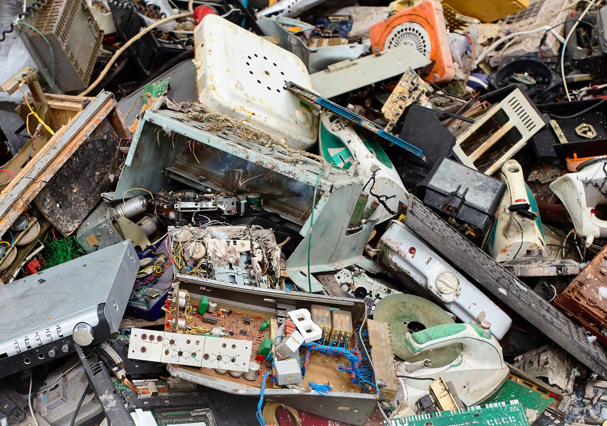E-waste: The raring dragon that should be slain for a sustainable environment

The world is coming to a more crushing realization of the disastrous strain we’re putting on the place we call home, Earth! What we believe to be ground breaking transitions into new, adaptive and better ways of living through electronics, is actually having an adverse effect on the quality of life. This is because the electronics give rise to electronic waste, e-waste
E-waste refers to consumer and business electronic equipment that is near or at the end of its useful life. According to the United Nations, in 2021, each person on the planet shall have produced on average 7.6kg of e-waste, meaning that a massive 57.4 million tonnes will be generated worldwide. These are alarming numbers to say the least. The waste is estimated to be heavier than the Great Wall of China, the world’s largest man-made feature, accumulated quickly during the Covid-19 pandemic as individuals abandoned old equipment and bought new ones as the new normal forced them to work from home.
Many Kenyans now own laptops, smart phones, and tablets as a result of working and learning from home. These electronics will eventually reach the end of their useful life. Increased e-waste volumes are a result of growing penetration of electronic use in emerging nations, as well as an increase in the replacement market as a result of technological advancements and working from home.
However, companies such as Safaricom in collaboration with the Ministry of Environment and Forestry, WEEE Centre and other stakeholders in the industry, have been marking the E-Waste Day, which was first celebrated on October 13, 2018, as it became clear that e-waste was an issue of international concern. The focus for last year’s initiative being the ‘Role of Consumers’, was poignant with people relying on e-products to keep them connected with colleagues and family and keeping their social life alive more so during the pandemic.
The focus was on the role of consumers in improving rates of reuse, refurbishment and recycling. The plans for sustainability in this area are as follows:
- Continue to create awareness on the negative impacts of e-waste not handled in a proper manner.
- Continue with the training programme targeting the informal sector to formalize their practices. They intend to improve their handling, health and safety practices within their trade. The telco continues to engage the regulator to ensure that the informal players get recognized and be part of the e-waste value chain.
- Circular economy – They continue to integrate circular economy principles of minimizing waste and pollution by reducing damages from economic activities and extension of the useful life of products and materials.
- On Extended Producer Responsibility – They work with other players in the sector to create a sustainable Producer Responsibility Organization that will be working with them in the management of end-of-life equipment.
Other plans put in place in previous years that are also imperative to mention are that Safaricom is also part of the National Steering Committee which is tasked with advising the government and other stakeholders on matters e-waste in Kenya. Getting behind the policy, creating awareness, educating the key players is what is crucial for effective solutions to be employed and getting to grips with the problem of e-waste.

